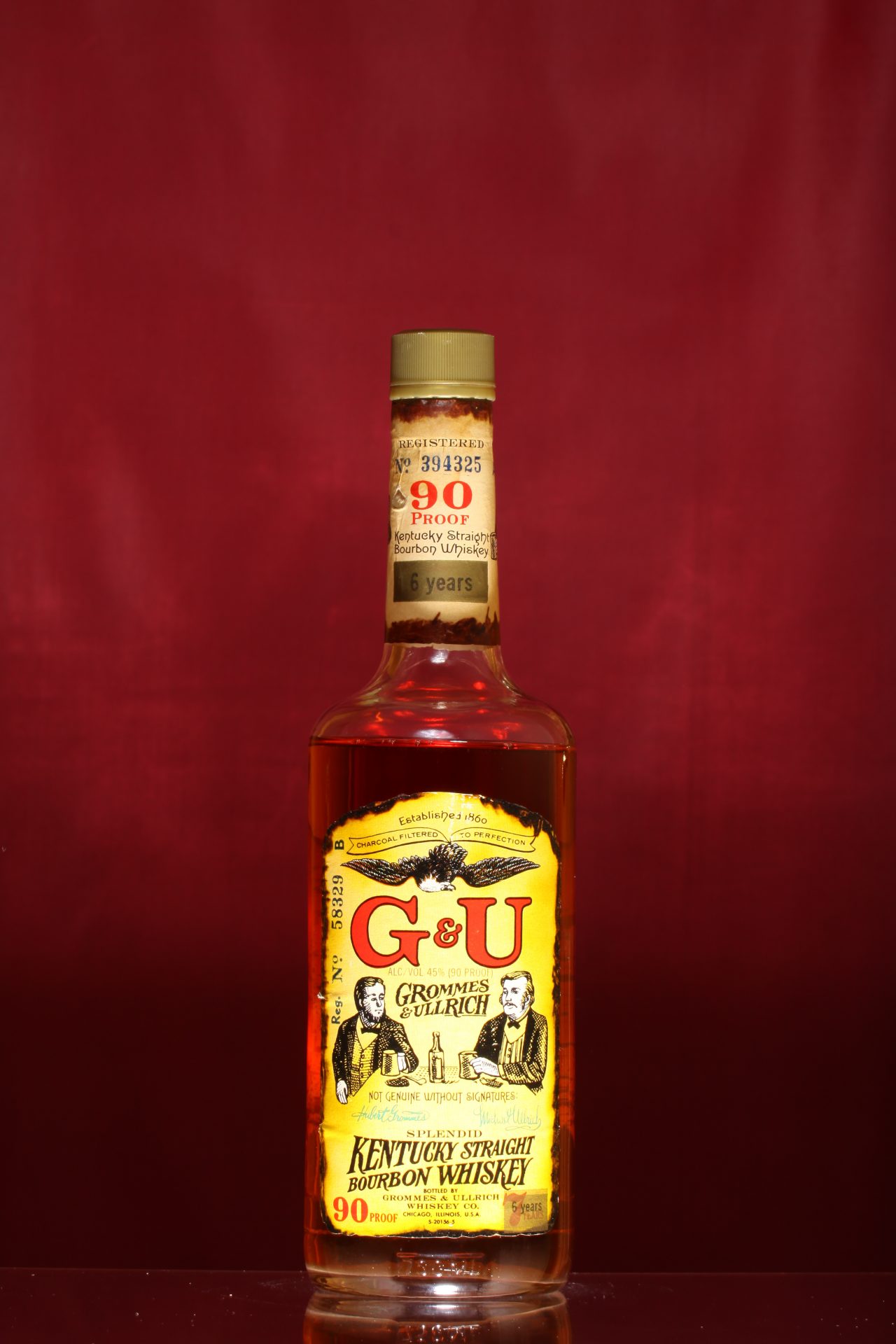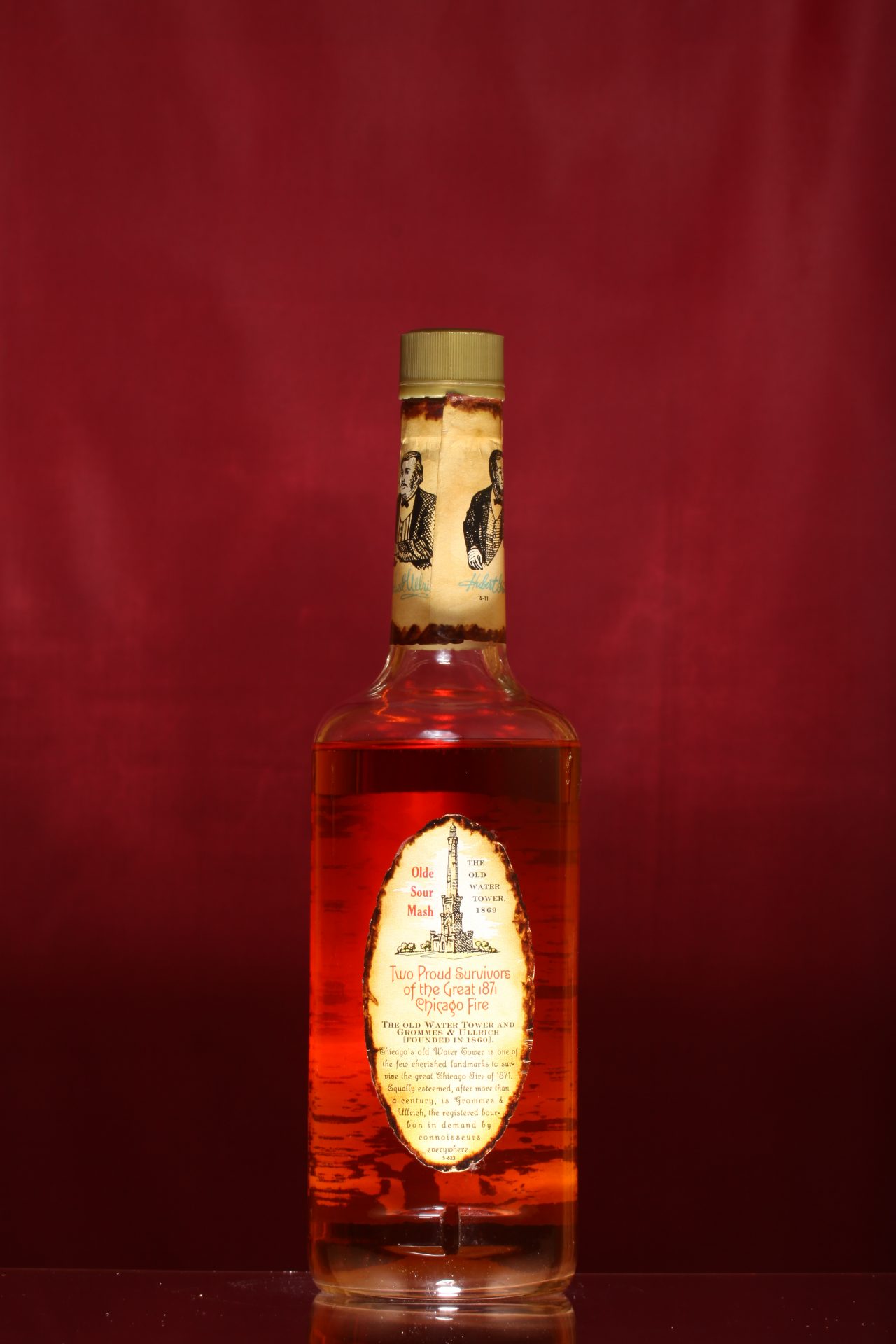G&U
| Type: | WHISKEY STRAIGHT |
| Flavor: | Whiskey Straight |
| Made From: | Distilled From At Least 51% Corn |
| Produced By: | GROMMES & ULLRICH WHISKEY |
| Origin: | Chicago, Ill. U.S.A. |
| Proof: | 90 |
| Age: | 7 |
| Importer: | Made In The U.S.A. |
| Location: | Chicago, Ill. |
Hubert Grommes and Michael Ullrich operated a grocery in Chicago in the late 1800s. In those days, many of the larger grocers had marketing agreements with suppliers that included labeling with their own house brand (they still do, of course), and before Prohibition, grocers were the main retailers of packaged liquor (either in labeled bottles or dispensed from a barrel into a jug or your own container). Some brands were famous for their high-quality specialty foods, such as S.S. Pierce, Harry & David, Austin Nichols, and Grommes & Ullrich.
The latter two are also known for their house brand liquors. Neither was, nor owned, a distillery anywhere, but were sellers of whiskey bottled especially to their specifications. That practice is still common today, of course. In the 1950s, Austin Nichols purchased the distillery of the major supplier of their Wild Turkey brand. Other brands continued to use a variety of distillery sources. Old Mr. Boston began as a distillery in Boston (Massachesetts, not Kentucky) but that didn’t survive Prohibition. The post-Repeal whiskey brands were nearly all owned by different companies than those that originated them, and I don’t believe that Grommes & Ullrich survived as a company. But the brand itself was purchased and used by a Chicago company (that MIGHT have been related to the original grocers, since Marquette was also one of their brands), and that’s who bottled your example. Heaven Hill is, today, a major source for house-branded bourbon, but HH was in its infancy in the early thirties and probably was not the vendor. Many brands sourced from distilleries in the Owensboro, KY, area, such as Medley, Green River, Fleishmann, and Glenmore. The same was true later of Ezra Brooks and (some say) the early Van Winkle whiskies. I believe Grommes & Ullrich did, too. Then Glenmore bought most of those distilleries up. Then Glenmore closed. And everyone went looking for new sources.


